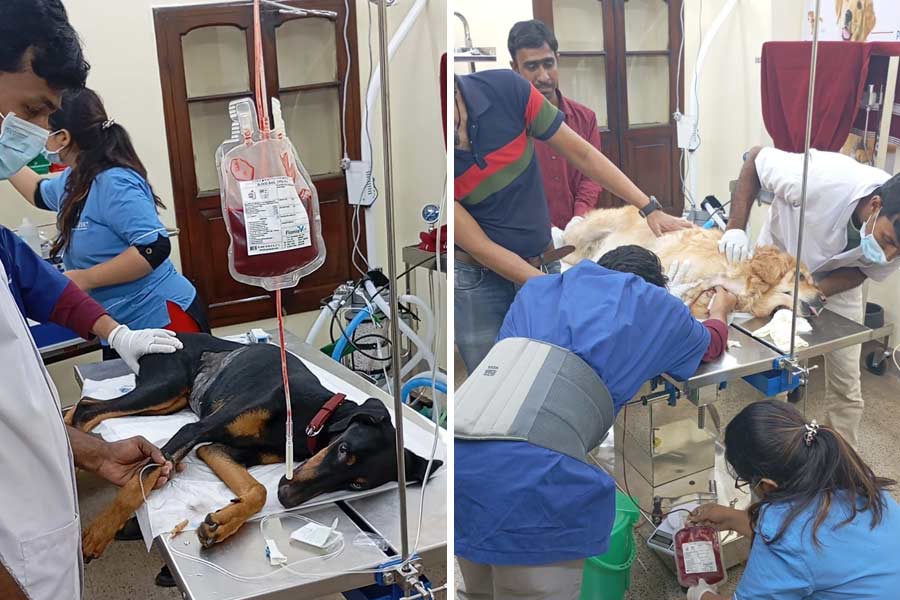An ailing 10-month-old doberman’s road to a new life came from the blood of a 10-year-old Golden Retriever in a Kolkata animal hospital.
The doberman named Leo has been suffering from a blood disease and his haemoglobin level had dropped to 3 on Monday and he needed an immediate blood transfusion. The lowest safe haemoglobin level on a dog is 14.1.
The donor, Koko the golden retriever, was brought to the Animal Health Pathological Lab in South Kolkata where the procedure was completed.
Trinamul leader Kunal Ghosh shared the pictures of both the dogs on his social media handle on Wednesday morning.
“I am a pet lover. I had been to the centre during the inauguration, I was unaware that they performed such complicated procedures,” Ghosh wrote.
He informed Leo would need dialysis and chemotherapy to get fully recovered.
Scientists have so far identified over a dozen blood groups among dogs and research is on to identify more.
“Blood types in dogs are genetic with complex inheritance patterns,” According to the website PetMD. “Each blood group is inherited independently, which means that a dog could have any combination of the 12+ blood groups.”
The ideal candidates for blood donation among dogs are those weighing over 22.6 kg, are up to date on the vaccines, without any heart murmur, free from medication, infectious diseases, parasites and blood-borne diseases, can sit quietly in one place while the blood is being collected and those that are DEA 1 negative.
Among the canine family, dogs negative for DEA 1 are preferred for blood donation, though they cannot be classified as universal donors, but their blood can be transfused to those who are either negative or positive for DEA 1.1 and DEA 1.2.
Veterinarians usually perform “crossmatching” to avoid any serious immune issue and check the overall compatibility of the donor and recipient.
Veterinarians say if a DEA 1 positive blood is given to a dog with DEA 1 negative the effectiveness of the newly transfused blood cells could be compromised and cause serious allergic reactions.
The total dose of blood to be transfused is based on the dog’s size and how much blood they have lost. This is given over a specific time period, and the dog is monitored closely to be sure there is no allergic reaction.
For many health issues, a single blood transfusion is all that’s needed to help the dog recover. For some diseases where there is ongoing blood loss or destruction of blood cells, the dog may need repeated blood transfusions.










